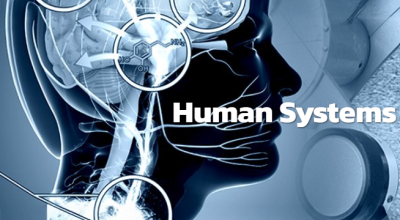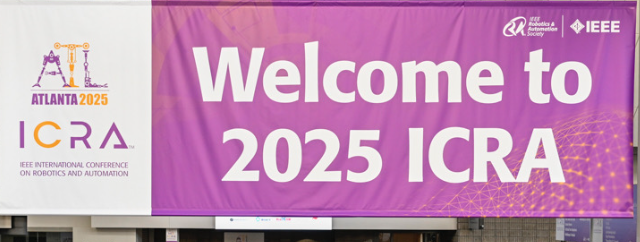
GTRI and Georgia Tech researchers were on hand this week for the 2025 IEEE International Conference on Robotics & Automation (ICRA 2025), held May 19-23 at the Georgia World Congress Center in Atlanta.
The flagship conference of the IEEE Robotics and Automation Society (RAS), ICRA brings together the world’s top researchers and industry leaders to share ideas, exchange knowledge, and advance the field of robotics for the benefit of humanity.
Among the exhibits and booths:
- GTRI's Agricultural Technology Research Program (ATRP) demonstrated projects that it is leading to make poultry processing faster, more efficient, and less labor-intensive.
- ATRP did not maintain a booth at the Georgia World Congress Center, but rather, it invited attendees to tours in the Food Processing Technology Building (photos below):

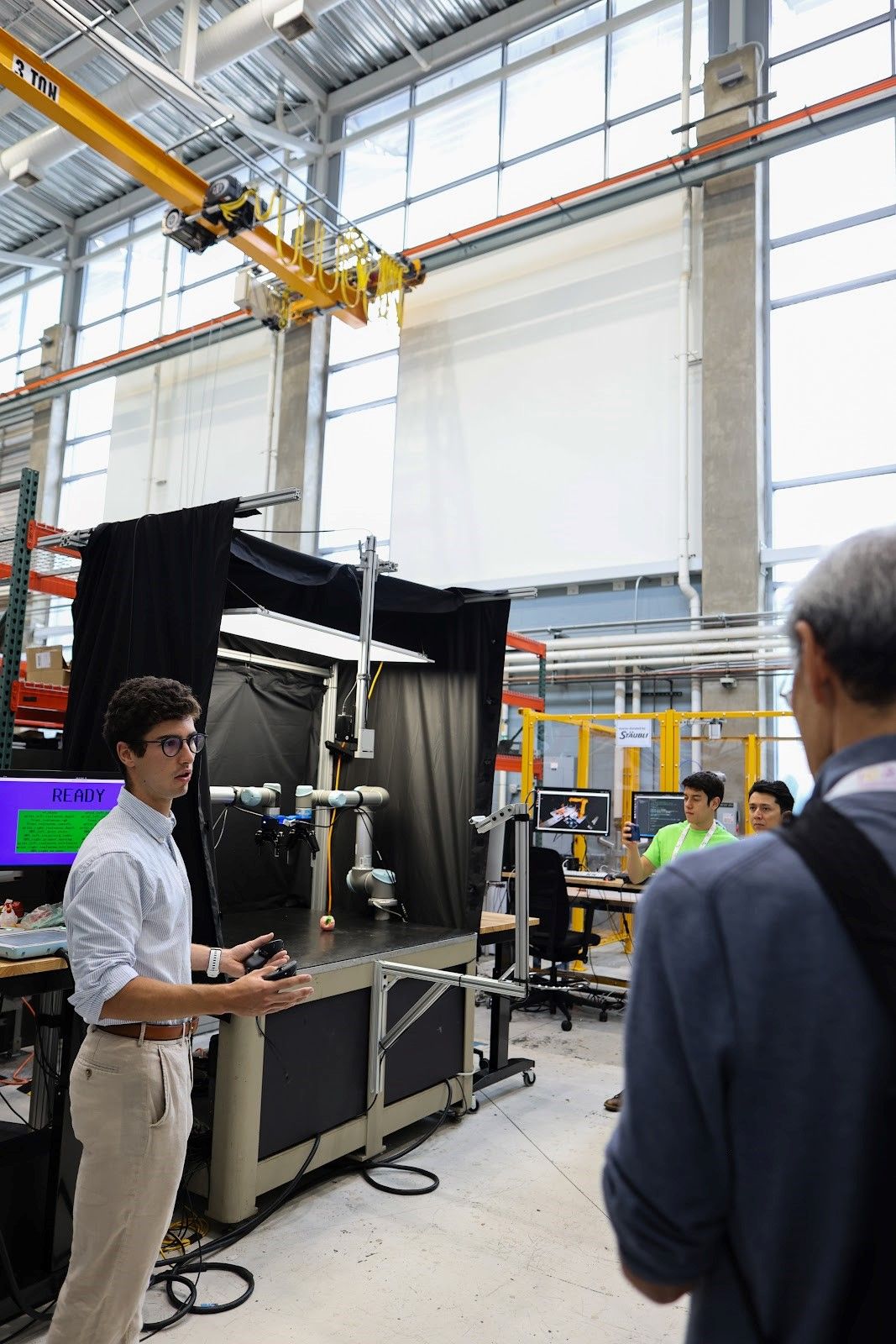
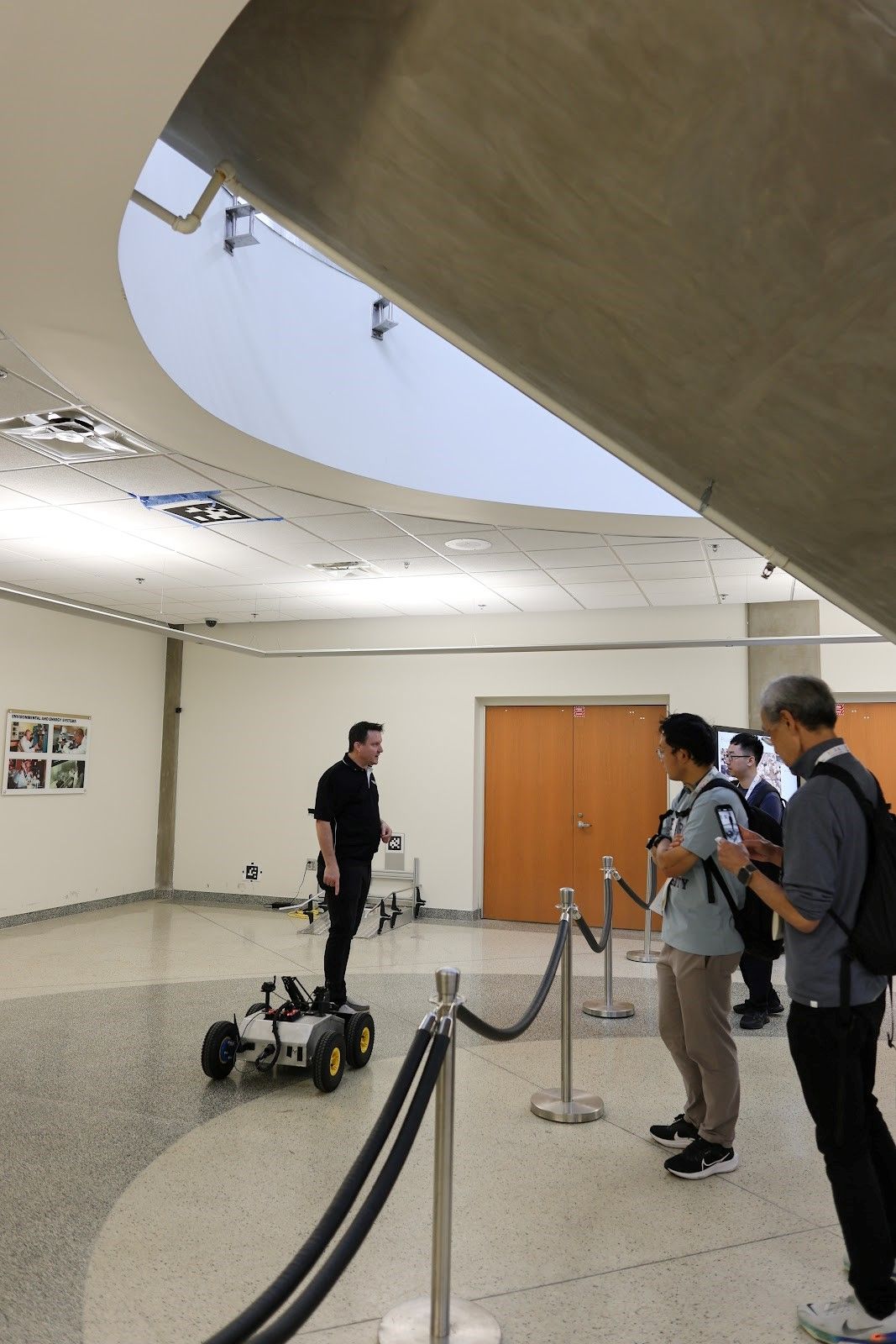
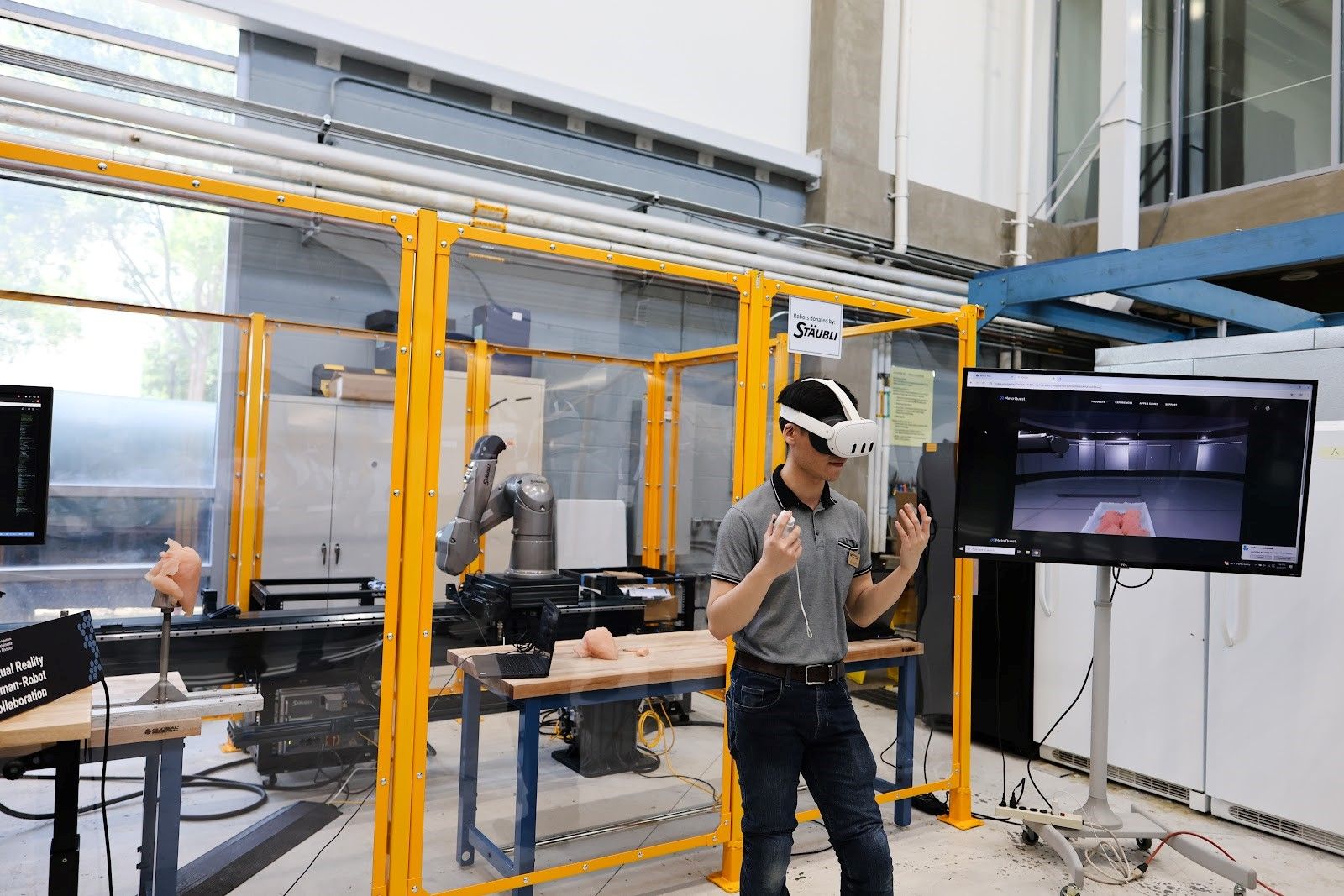
"We’re excited to explore the latest in robotics and automation and share how these technologies shape the future of food manufacturing and agribusiness," said Doug Britton, program manager of ATRP.
Aerospace, Transportation & Advanced Systems Laboratory (ATAS) research engineer Walker Byrnes presented the paper, "Language-Guided Continual Learning for Task Planning with Iterative Model Building (CLIMB)."
"CLIMB is a high-level task planner that builds and updates a robot’s world state model by iteratively executing tasks and observing feedback from rollouts to identify predicate constraints and effects," said Walker. "CLIMB can build a model from a natural language description, learn non-obvious predicates while solving tasks, and store that information for future problems.
"We demonstrate the ability of CLIMB to improve performance in common planning environments compared to baseline methods and show its ability to solve problems directly on real systems."
Other GTRI researchers who presented papers include: Stephen Balakirsky (ATAS), Ai-Ping Hu (ATAS), Jessica Inman (Cybersecurity, Information Protection, and Hardware Evaluation Research [CIPHER]), Sean Wilson (ATAS), and Robert Wright (CIPHER).
- Ground Control Robotics, in collaboration with researchers from the Georgia Institute of Technology, revealed their five-link myriapod (nicknamed "Major Tom"), a low-cost, all-terrestrial alternative for weeding, pest control, and agricultural data collection.
Gershom Richards, a Research Engineer in GTRI's Electronic Systems Laboratory (ELSYS), volunteered to represent GTRI for the conference.
"GTRI is a key stakeholder in this ICRA conference," he said. "Our ATAS laboratory houses both the Intelligent Sustainable Technologies Division (ISTD) and the Robotics and Autonomous Systems Division (RASD), where GTRI's talented researchers rapidly develop cutting-edge robotic and autonomous technologies to improve society, agriculture, defense, and the human condition.
"Furthermore, GTRI hosted technical tours on Monday, where we featured a presentation of our research labs and demonstrations of robotics applications, including multi-robot collaborative manipulation, VR tasking, adaptive cutting, and robotics for animal systems.
"GTRI's participation demonstrates our range of basic and applied research, with an emphasis on developing advanced prototypes for test and evaluation in environments representative of operational conditions, putting real robots in the real world."
The 2025 IEEE International Conference on Robotics and Automation (ICRA 2025) is the IEEE Robotics and Automation Society’s flagship conference. The first ICRA was held in Atlanta in 1984, establishing a crucial platform for global robotics and automation research, which has grown exponentially since.
Writer: Christopher Weems
GTRI Communications
Georgia Tech Research Institute
Atlanta, Georgia
The Georgia Tech Research Institute (GTRI) is the nonprofit, applied research division of the Georgia Institute of Technology (Georgia Tech). Founded in 1934 as the Engineering Experiment Station, GTRI has grown to more than 2,900 employees, supporting eight laboratories in over 20 locations around the country and performing more than $940 million of problem-solving research annually for government and industry. GTRI's renowned researchers combine science, engineering, economics, policy, and technical expertise to solve complex problems for the U.S. federal government, state, and industry.



